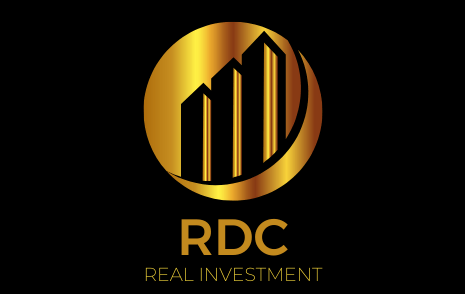Mastermind Behind The US Digital Asset Laws
Trump Leveraging US Digital Asset Laws for Debate Victory
Looks like Trump is embracing cryptocurrency, a move that could sway the votes of many crypto enthusiasts. With crypto being hailed as the future, his support for it seems strategically savvy.
As a businessman, Trump’s focus on the future and following the money speaks volumes. It’s a calculated move that demonstrates his understanding of where the world is headed and his commitment to staying ahead of the curve.
Exploring the Future of Cryptocurrency US digital asset laws
In recent years, the discourse surrounding cryptocurrency regulation in the United States has been a focal point of discussion among policymakers, industry stakeholders, and the general public alike. As the landscape of digital assets continues to evolve and expand, the need for clear and comprehensive regulatory frameworks has become increasingly apparent.
In this article, we delve into the nuances of cryptocurrency regulation in the United States, examining the perspectives of key stakeholders and assessing the potential implications for the future of the industry.
Understanding the Current Regulatory Environment
The current regulatory environment surrounding cryptocurrency in the United States is characterized by a patchwork of laws and guidelines that vary at the federal and state levels. At the federal level, agencies such as the Securities and Exchange Commission (SEC), the Commodity Futures Trading Commission (CFTC), and the Financial Crimes Enforcement Network (FinCEN) play significant roles in regulating different aspects of the cryptocurrency market.
SEC’s Approach to Cryptocurrency Regulation
The SEC’s approach to cryptocurrency regulation primarily revolves around determining whether a particular digital asset qualifies as a security under existing securities laws. This determination is crucial as it dictates the extent to which issuers and traders of digital assets must comply with securities regulations. The SEC has notably taken enforcement actions against companies and individuals involved in offering unregistered securities through initial coin offerings (ICOs) and other fundraising mechanisms.
CFTC’s Oversight of Cryptocurrency Derivatives
The CFTC, on the other hand, focuses on regulating cryptocurrency derivatives, such as futures and options contracts, through its jurisdiction over the commodities markets. In recent years, the CFTC has approved the launch of Bitcoin futures contracts by regulated exchanges, providing institutional investors with avenues for exposure to the cryptocurrency market while subjecting such products to regulatory oversight.
FinCEN’s Role in Anti-Money Laundering Compliance
FinCEN plays a critical role in combating money laundering and illicit financial activities involving cryptocurrencies by enforcing anti-money laundering (AML) regulations. Cryptocurrency exchanges and other virtual asset service providers are required to implement robust AML and know-your-customer (KYC) measures to prevent their platforms from being used for illicit purposes.
The Biden Administration’s Stance on Cryptocurrency
With the inauguration of President Joe Biden, there has been speculation regarding the administration’s stance on cryptocurrency regulation and its potential impact on the industry. While the Biden administration has yet to announce specific policy initiatives related to cryptocurrency, there are indications that regulatory clarity and investor protection will remain key priorities.
Appointees and Nominees with Cryptocurrency Experience
Notably, several individuals with experience in the cryptocurrency space have been appointed or nominated to key positions within the Biden administration. For example, Gary Gensler, the former chairman of the CFTC, has been nominated to serve as the chair of the SEC. Gensler’s background in blockchain technology and digital assets suggests that the SEC under his leadership may take a proactive approach to regulating the cryptocurrency market.
Congressional Inquiries and Legislative Proposals
In addition to executive branch actions, there have been congressional inquiries and legislative proposals aimed at addressing various aspects of cryptocurrency regulation. Members of Congress from both parties have expressed interest in exploring regulatory frameworks that balance innovation and investor protection. However, reaching consensus on complex issues such as taxation, consumer protection, and national security concerns remains a challenge.
Industry Perspectives and Market Dynamics
Amidst the evolving regulatory landscape, industry stakeholders and market participants continue to adapt to changing dynamics and navigate regulatory uncertainty. Companies operating in the cryptocurrency space are increasingly focused on compliance efforts and engaging with regulators to shape policy outcomes that foster innovation while ensuring market integrity.
Institutional Adoption and Mainstream Acceptance
The growing interest and participation of institutional investors in the cryptocurrency market have contributed to its mainstream acceptance and legitimacy. Major financial institutions, hedge funds, and asset managers are allocating capital to digital assets as part of their investment strategies, driving liquidity and market growth.
Technological Innovations and Decentralized Finance (DeFi)
Furthermore, technological innovations such as decentralized finance (DeFi) are reshaping traditional financial services and expanding the use cases for blockchain technology beyond simple payments and store of value. DeFi platforms enable peer-to-peer lending, automated trading, and other financial services without intermediaries, challenging the existing regulatory frameworks and raising questions about their applicability to decentralized systems.
Conclusion: Road Ahead For US digital asset laws
US digital asset laws looks to be in play if Trump gets into the office again. As the United States grapples with the complexities of cryptocurrency regulation, stakeholders across the public and private sectors must collaborate to navigate the road ahead. Achieving regulatory clarity and fostering innovation while addressing legitimate concerns related to investor protection and financial stability will require thoughtful deliberation and adaptive policymaking.
By staying abreast of developments in the regulatory landscape and actively participating in the dialogue, the cryptocurrency industry can position itself for sustainable growth and mainstream adoption in the years to come.
Thank you for taking the time to read about the US digital asset laws. Remember to show your support by liking, sharing, and commenting. Hope this article give you an insight and start paying to crypto around the politics or government to make some quick cash.
Explore the articles below that are worth your attention:
Articles You Will Like:
FAQ (Frequently Asked Questions):US digital asset laws

